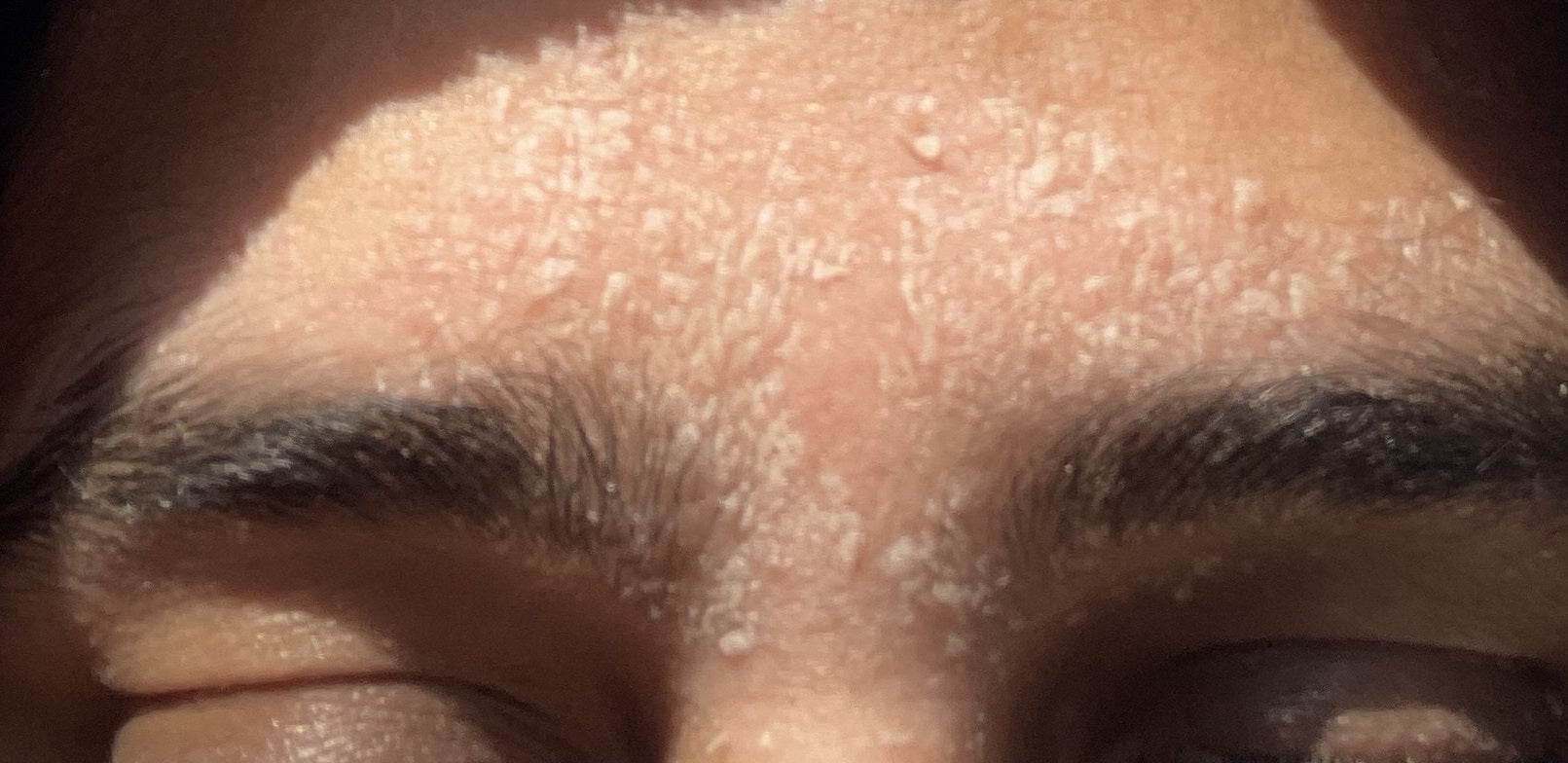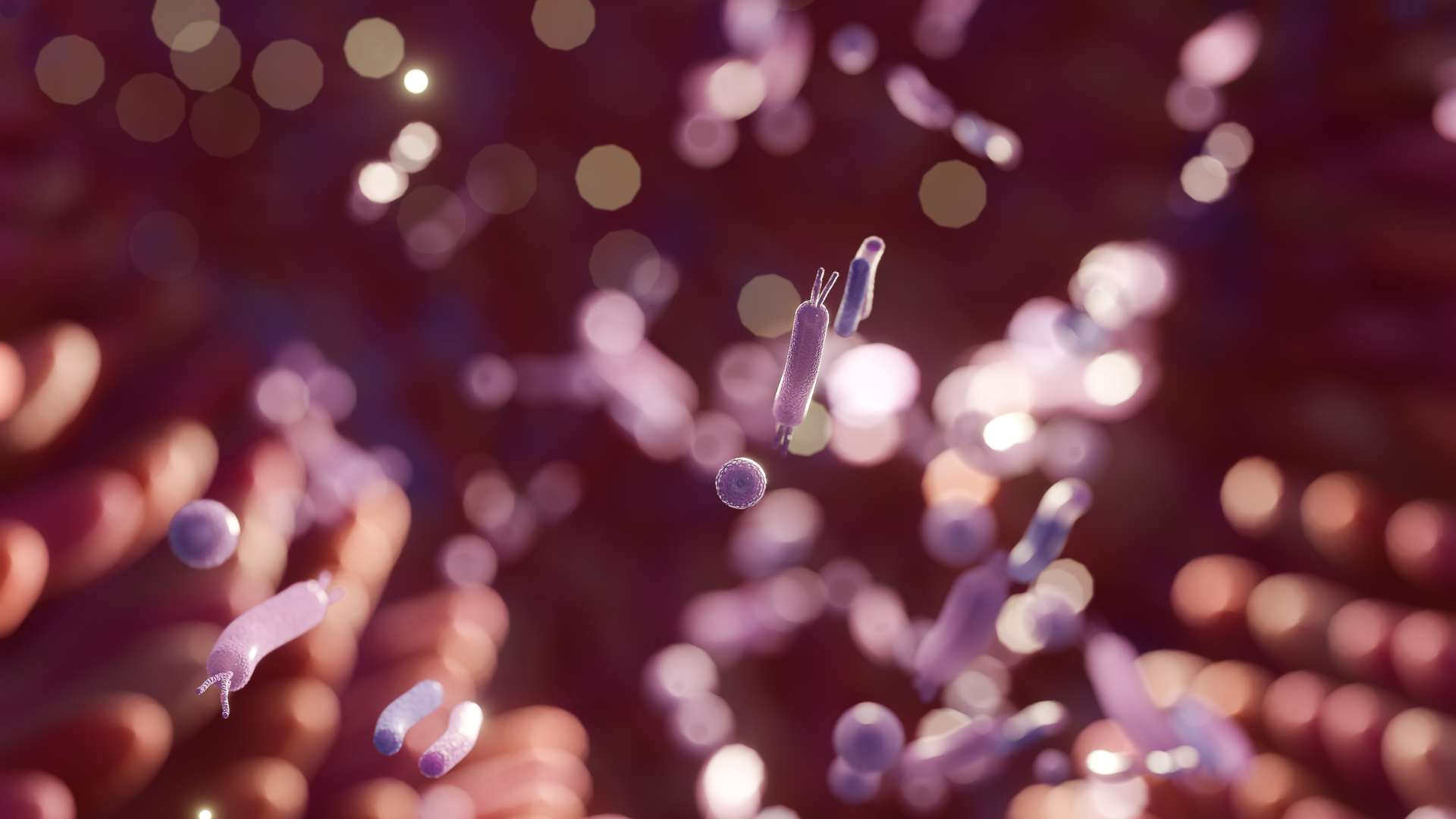Is Retinol Safe During Pregnancy? Here’s What You Need to Know
Shop Hydrolytic®
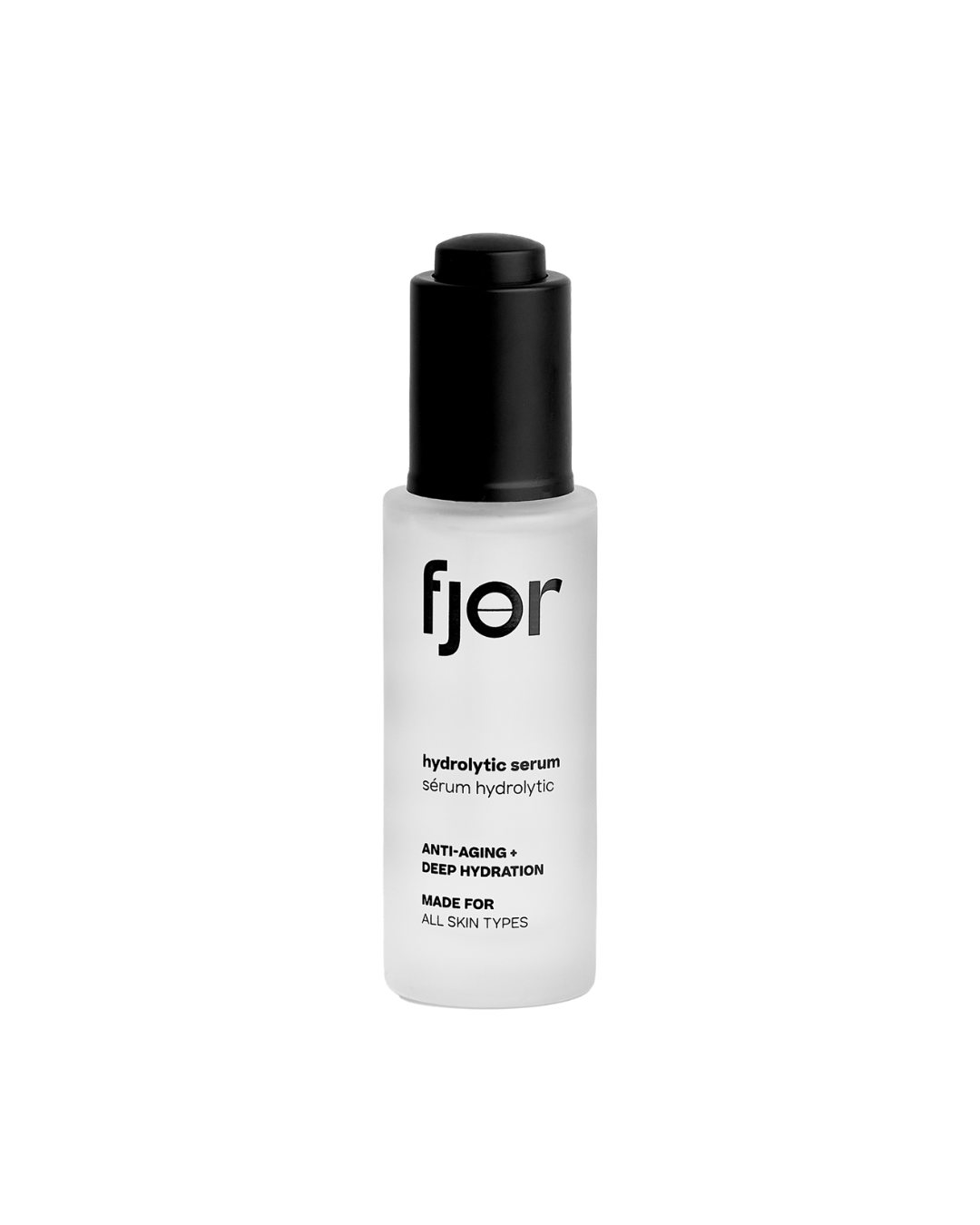
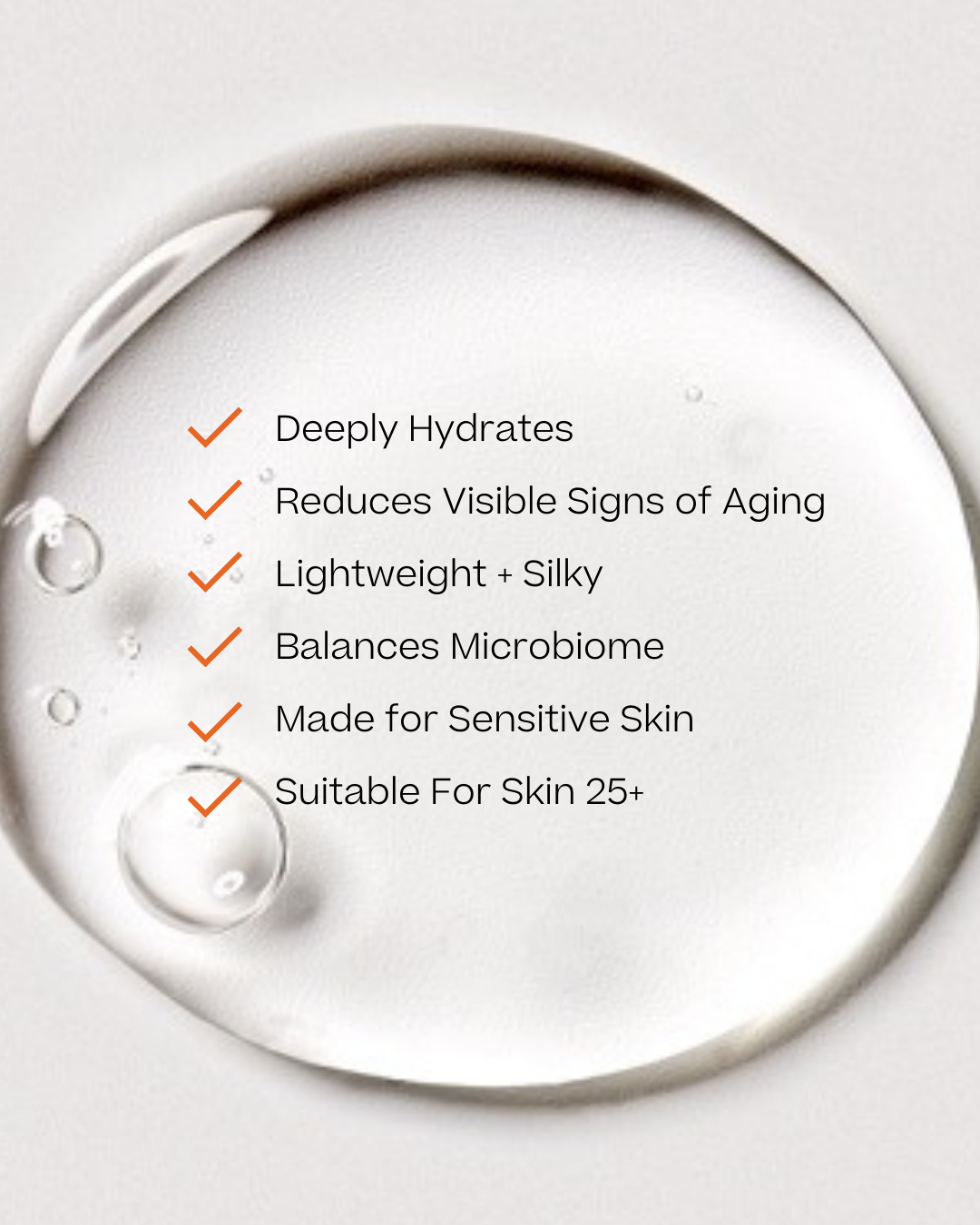
Hydrolytic® Serum 30ml
Anti-Aging + Deep Hydration
£97.00
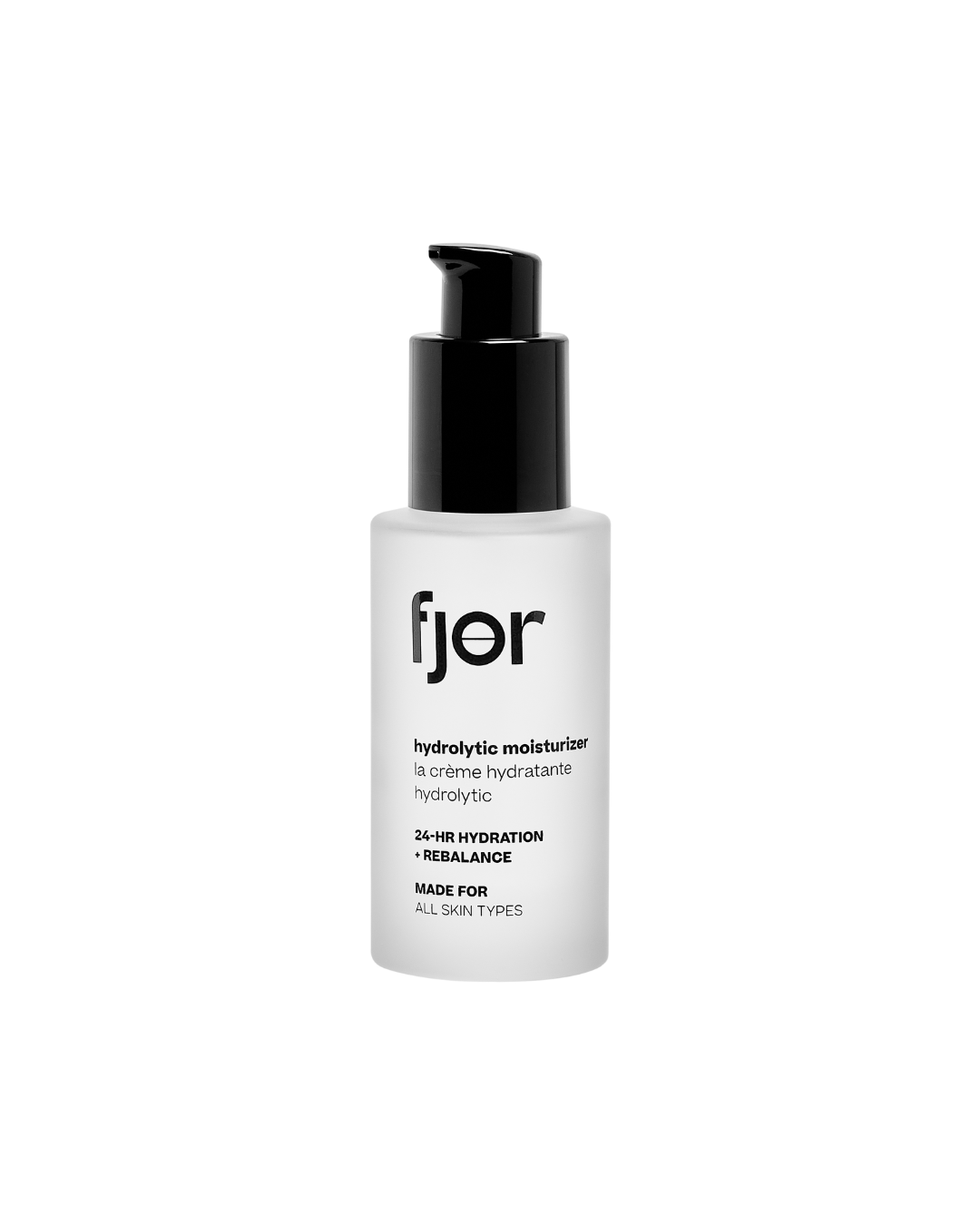
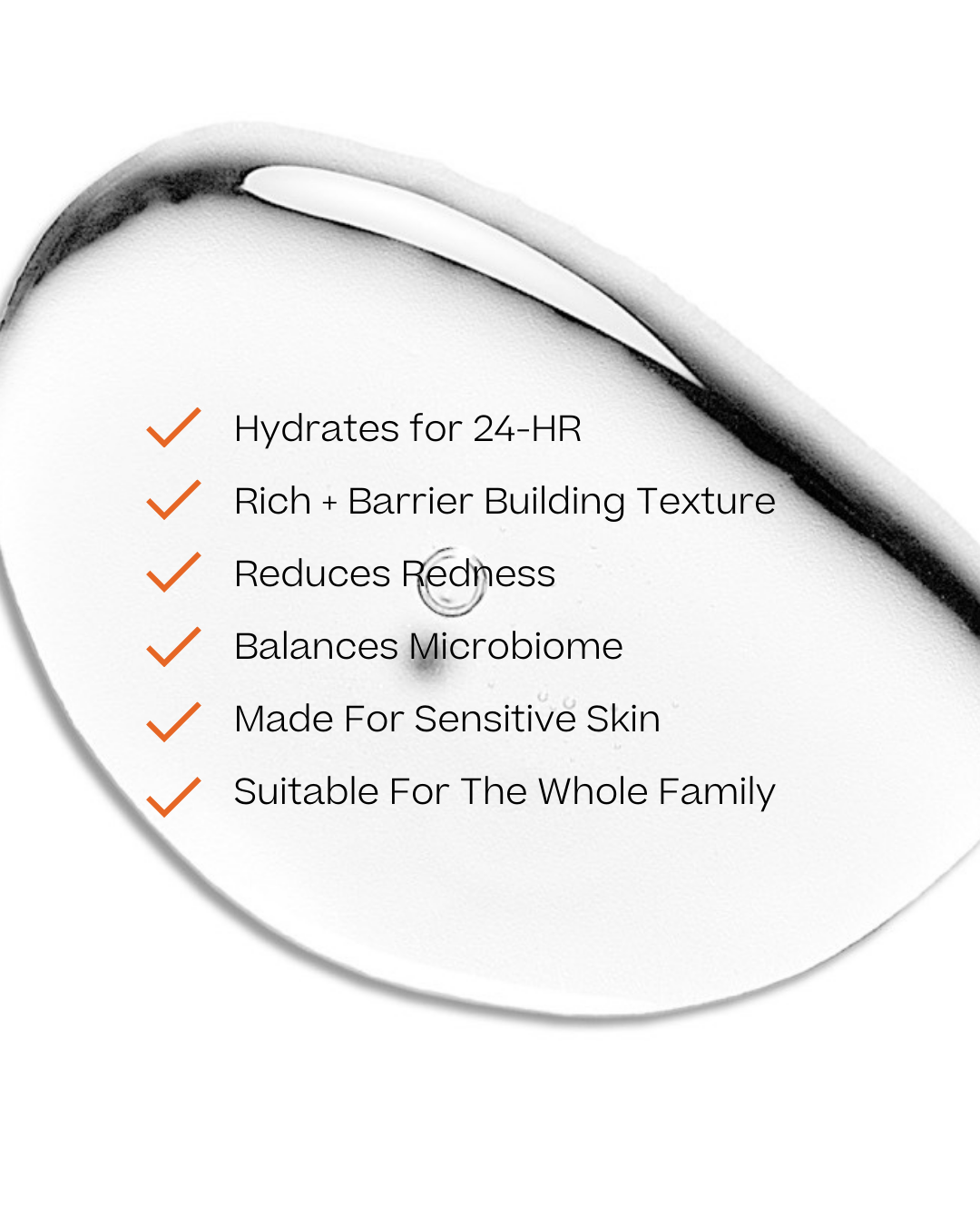
Hydrolytic® Moisturizer 30ml
24-hr Hydration + Rebalance
£45.00
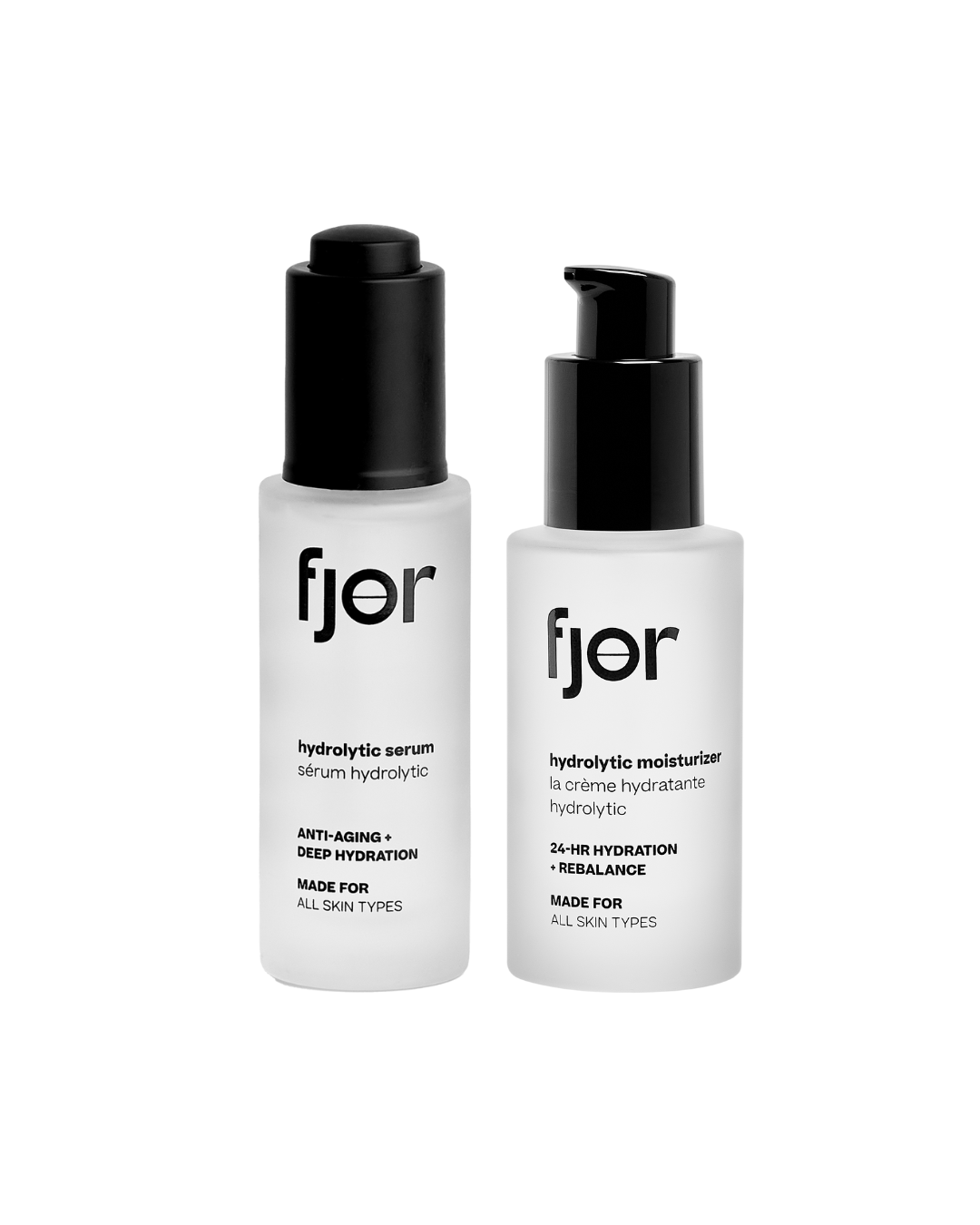
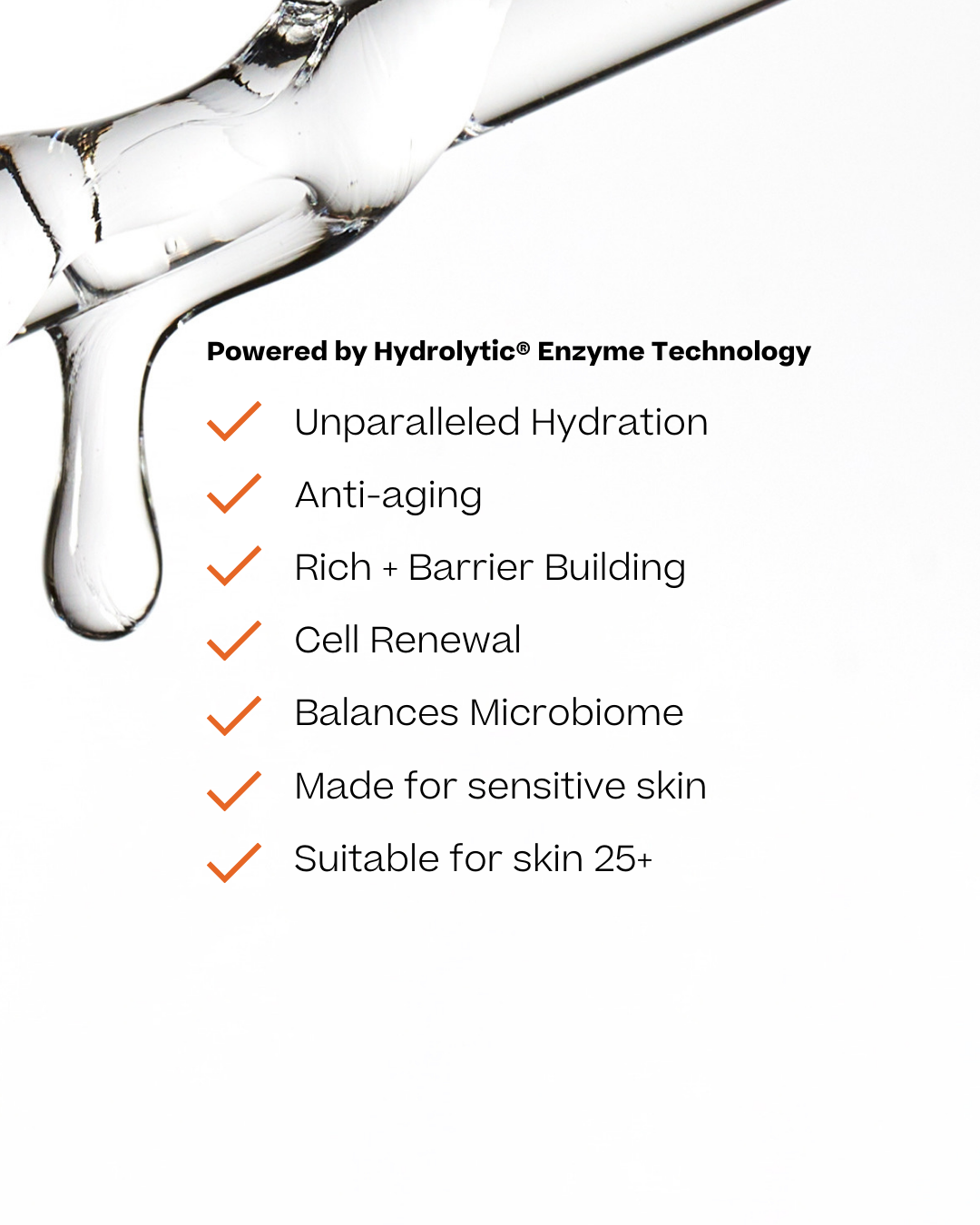
The Hydrolytic® Duo
Hydrolytic® Serum + Moisturizer
£142.00 £129.00
Science
The Science Behind fjör



Quiz
Take the Skin Quiz
Shop
Science
Science
Community
Community
Quiz
Quiz
Cart (0)
Your cart is empty
Continue ShoppingFeb 11, 2025
Is Retinol Safe During Pregnancy? Here’s What You Need to Know
Retinol is widely used in skincare, but during pregnancy, it’s a risk you don’t want to take. Linked to developmental issues, it’s best avoided entirely. Read more below.

Contents of this article
- Is Retinol Safe to Use During Pregnancy?
- Retinol vs. Retinoids During Pregnancy
- Can I Use Retinol While Pregnant?
- Safe Alternatives to Retinol for Pregnancy
- What Skincare Ingredients to Avoid During Pregnancy?
- How Does Retinol Affect Pregnancy?
- Can Topical Retinol Harm My Baby?
- FDA Guidelines on Retinol and Pregnancy
- How Long Before Pregnancy Should I Stop Using Retinol?
- Pregnancy-Safe Skincare Routine
- Best Anti-Aging Skincare for Pregnancy
- Final Thoughts
- Your Questions, Our Priority
Key takeaways from this article
- Retinol is not safe during pregnancy as it has been linked to developmental risks in unborn babies.
- Even topical retinol carries potential dangers, making it best to avoid entirely.
- Pregnancy-safe alternatives like the Hydrolytic® Enzyme, bakuchiol, and peptides offer effective skin renewal without harmful side effects.
- A microbiome-supporting skincare routine strengthens the skin barrier and benefits both mother and baby’s long-term health.
Is Retinol Safe to Use During Pregnancy?
Retinol has been marketed as a miracle ingredient for years, but the truth is, it’s harsh, inflammatory, and damaging to the skin barrier—even when you’re not pregnant. During pregnancy, it’s not just an irritating ingredient; it’s a serious risk. Retinol is a form of vitamin A, and high doses of vitamin A derivatives have been directly linked to severe developmental risks in unborn babies. Even though topical retinol is absorbed at lower levels than oral retinoids, there is no proven safe amount during pregnancy. Dermatologists widely agree that it’s simply not worth the risk.
The good news? Retinol isn’t necessary for healthy skin—safer, pregnancy-friendly alternatives exist that deliver real results without compromising your skin or your baby’s health.
Retinol vs. Retinoids During Pregnancy
All vitamin A derivatives, including retinol, are part of the retinoid family, and while they vary in potency, they share one critical problem: they can be absorbed into the bloodstream. Prescription-strength retinoids like isotretinoin (Accutane) have been proven to cause birth defects, which is why they come with strict pregnancy warnings. While there’s less research on topical retinol, there’s enough concern that dermatologists strongly recommend avoiding it. Retinoids aren’t an essential part of skincare—but protecting your baby is.
Can I Use Retinol While Pregnant?
No, retinol isn’t up for debate. The American College of Obstetricians and Gynecologists (ACOG) and dermatologists across the board recommend stopping retinol immediately when you find out you’re pregnant. The research on topical retinol’s risks is limited, but what we do know about oral retinoids is alarming enough. The bottom line? There is no safe level of retinol use during pregnancy. If it’s in your routine, remove it now. If you’re unsure about any ingredient, always check with your doctor or dermatologist.
Safe Alternatives to Retinol for Pregnancy
Retinol isn’t the only path to healthy skin. The Hydrolytic® Enzyme is a cutting-edge alternative that delivers renewed, smoother, and firmer skin—without the risks associated with retinol. Unlike vitamin A derivatives, which force rapid cell turnover and often lead to irritation, enzymes work in sync with your skin’s natural renewal process, gently dissolving dead skin cells without disrupting the skin barrier. This means glowing, refreshed skin—without sensitivity, dryness, or long-term damage.
What Skincare Ingredients to Avoid During Pregnancy?
Retinol isn’t the only ingredient you should be watching out for. Salicylic Acid is to be avoided because it is similar to aspirin -which can cause birth defects. In our opinion preservatives should be avoided at all times in skincare routines. Check your products with Yuka to see if they have preservatives. If they do then don’t use them.
Always check labels and be skeptical of ‘clean beauty’ claims—just because something is labeled ‘natural’ doesn’t mean it’s pregnancy-safe. Be careful of endocrine disruptors. Other ingredients to avoid include Benzoyl Peroxide, Tetracycline, Hydroquinone, Formaldehyde, Chemical sunscreens.
How Does Retinol Affect Pregnancy?
The issue with retinol isn’t just speculation—it’s science. Retinoids have a well-documented history of interfering with fetal development. Oral versions like isotretinoin are strictly regulated because they cause birth defects, including neurological, cardiovascular, and craniofacial abnormalities. Even though topical retinol absorbs at lower levels, there’s still no proven safe threshold. The risk isn’t worth it.
Can Topical Retinol Harm My Baby?
If you’ve been using retinol before realizing you’re pregnant, don’t panic—but stop immediately. We also recommend raising this with your doctor. The risk of occasional topical use is likely low, but because vitamin A toxicity is linked to birth defects, you don’t want to take chances. If you’re concerned, speak with your doctor. Going forward, stick with pregnancy-safe skincare that gives you peace of mind.
FDA Guidelines on Retinol and Pregnancy
The FDA categorizes oral retinoids like isotretinoin (Accutane) as Category X—which means they are strictly prohibited during pregnancy due to their severe risks. While topical retinol hasn’t been formally classified, the lack of conclusive research has led most dermatologists to advise against all forms of retinoids during pregnancy. The safest move? Avoid them completely.
How Long Before Pregnancy Should I Stop Using Retinol?
If you’re planning to get pregnant, it’s best to stop using retinol well in advance to eliminate any potential risks. While topical retinol absorbs at lower levels than oral retinoids, there is no established “safe” exposure threshold during pregnancy.
Most dermatologists recommend discontinuing retinol at least one month before trying to conceive—this allows your body time to metabolize and clear any residual vitamin A derivatives. However, if you’ve been using stronger prescription retinoids like tretinoin or oral isotretinoin (Accutane), the timeline is much longer. Because these medications have been directly linked to birth defects, they require a strict washout period of several months, sometimes up to a year, before it’s considered safe to conceive.
If you’ve been using retinol or any form of retinoid and are now pregnant, stop immediately and consult your doctor. And if you’re in the planning stages of pregnancy, switching to pregnancy-safe, microbiome-supporting alternatives like the Hydrolytic® Enzyme will help keep your skin healthy—without any unnecessary risks.
Pregnancy-Safe Skincare Routine
A pregnancy-safe skincare routine should focus on hydration, nourishment, and microbiome support—not harsh, outdated actives like retinol. Swap out irritating ingredients for gentle cleansers, fragrance-free moisturizers, and mineral sunscreens. Glycerin, hyaluronic acid (HA), and gentle enzyme exfoliators help maintain a strong, resilient skin barrier without irritation.
Beyond hydration, your skin’s microbiome plays a crucial role in skin health. Prebiotics and the Hydrolytic® Enzyme help strengthen your skin’s natural defenses by supporting a diverse, balanced microbiome. And this isn’t just about your own skin—seeding a strong microbiome at birth is critical for your baby’s lifetime health. A well-supported microbiome can help build a stronger immune system, reduce skin sensitivity, and support overall well-being for your child.
Best Anti-Aging Skincare for Pregnancy
If you’ve been relying on retinol for anti-aging, don’t worry—there are better, pregnancy-safe solutions. Hydration is key, with ingredients like hyaluronic acid, glycerin, and ceramides helping to keep skin plump and youthful by reinforcing the skin barrier.
For collagen support, peptides play an essential role in firming and strengthening the skin. But to be fully effective, peptides need to penetrate deeply—and this is where enzyme exfoliation comes in. By removing dead skin cells in a gentle, controlled way, enzymes allow peptides to absorb more efficiently, making them even more effective in supporting collagen production and skin renewal. The result? Smoother, firmer skin—without the risks of retinol or harsh actives.
Pregnancy-safe skincare doesn’t mean settling for less. With hydration, microbiome care, and enzymatic renewal, your skin can stay healthy, resilient, and radiant—all while supporting your baby’s health, too.
Final Thoughts
Navigating skincare during pregnancy can feel overwhelming, but it doesn’t have to be. The most important takeaway? Retinol is not worth the risk. There are plenty of safe, effective alternatives that deliver real results without endangering your baby’s health. The key is to simplify your routine, focus on pregnancy-safe actives, and prioritize ingredients that truly work with your skin.
Your skin doesn’t need risky ingredients—it needs care and support. And with the right approach, you can have a healthy, radiant complexion without compromise.
However, this is not medical advice. Every pregnancy is unique, and skincare needs vary from person to person. Always consult with your doctor or dermatologist before making any changes to your skincare routine to ensure you’re making the safest choices for you and your baby.
Your Questions, Our Priority
Can I use retinol while breastfeeding?
There is limited research on the safety of topical retinol while breastfeeding, but most healthcare professionals recommend avoiding it. Vitamin A can pass into breast milk, so it’s best to choose safer alternatives.
How can I exfoliate my skin safely during pregnancy?
Enzyme exfoliation, like the breathrough Hydrolytic® Enzyme, gently removes dead skin cells without disrupting the skin barrier or causing inflammation. It’s an effective and pregnancy-safe way to maintain smooth, refreshed skin.
How do I prevent fine lines and wrinkles without retinol?
Hydration is key. Hyaluronic acid, glycerin, ceramides, and peptides help plump and firm the skin. Enzymatic exfoliation also enhances the penetration of peptides, allowing them to work more effectively to support collagen production.
How important is my skin microbiome during pregnancy?
Your skin microbiome plays a crucial role in skin health and overall immunity. Supporting it with prebiotics and the Hydrolytic® Enzyme can help strengthen your skin barrier—and can even contribute to a healthier microbiome for your baby at birth.
What is microbiome diversity, and why does it matter for skin health?
Microbiome diversity refers to the variety of microorganisms, such as bacteria and fungi, living on the skin. A diverse microbiome helps protect the skin from harmful pathogens, reduce inflammation, and maintain overall skin health. Low diversity can contribute to sensitivity, redness, and other skin issues.
What is the skin barrier, and why is it important?
The skin barrier, also known as the stratum corneum, is the outermost layer of the skin that acts as a protective shield. It prevents water loss, keeps out harmful substances, and supports skin health. A damaged barrier can lead to dryness, irritation, and increased sensitivity to external stressors.
What is fjör?
fjör is a microbiome skincare brand from Scandinavia, designed to boost skin health by enhancing microbiome diversity. Using innovative Hydrolytic® Enzyme technology, fjör supports sensitive skin with a minimalist approach, focusing on resilience, hydration, and balance for a naturally radiant complexion.
Is fjör breastfeeding and pregnacy safe?
Our products have undergone a full safety assessment and are considered safe for regular use. We have undergone toxicological evaluation and bioburden testing. All ingredients are widely recognized as safe for topical application, and there’s nothing in the formulas that would raise concerns. Additionally, our products have been dermatologically tested for sensitive skin.
Based on the toxicology evaluation of the products and stated intended use for adults, there are no precautions required for pregnant/nursing women who are using the product.
However, we always recommend checking with your doctor before using any new products while pregnant or nursing.
Authors

Written by William Smithwite
Co-founder of fjör & Skin Microbiome Expert

Reviewed by Natalie Enslöw
Founder & CEO of fjör
References
- European Union. Commission Regulation (EU) 2024/996 of 3 April 2024 Amending Annexes II, III, and V to Regulation (EC) No 1223/2009 of the European Parliament and of the Council on Cosmetic Products. Official Journal of the European Union, 2024
- Azaïs-Braesco, Véronique, and Gérard Pascal. "Vitamin A in pregnancy: requirements and safety limits."The American journal of clinical nutrition71.5 (2000): 1325S-1333S.
Contents of this article
- Is Retinol Safe to Use During Pregnancy?
- Retinol vs. Retinoids During Pregnancy
- Can I Use Retinol While Pregnant?
- Safe Alternatives to Retinol for Pregnancy
- What Skincare Ingredients to Avoid During Pregnancy?
- How Does Retinol Affect Pregnancy?
- Can Topical Retinol Harm My Baby?
- FDA Guidelines on Retinol and Pregnancy
- How Long Before Pregnancy Should I Stop Using Retinol?
- Pregnancy-Safe Skincare Routine
- Best Anti-Aging Skincare for Pregnancy
- Final Thoughts
- Your Questions, Our Priority
Authors

Written by William Smithwite
Co-founder of fjör & Skin Microbiome Expert

Reviewed by Natalie Enslöw
Founder & CEO of fjör

